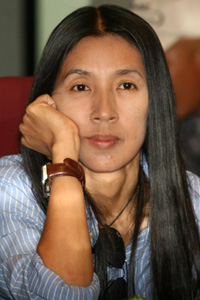
Prime Minister Prayut Chan-o-cha's bold move to give the army's top job to someone outside his trusted circle has surprised many. But it is a strategic decision that is well-suited with what he called "the current situation".
Army chief-designate Gen Chalermchai Sittisart was an unexpected choice, given his background outside of the so-called Burapha Phayak clique. He has neither served in the 21st Infantry Regiment (Queen's Guard) nor the 2nd Infantry Division where Gen Prayut and Deputy Prime Minister Prawit Wongsuwon grew into their military careers.
"I put all the names of the candidates into a basket, took a look and chose the one who is best suited to the situation," said Gen Prayut, also head of the National Council for Peace and Order (NCPO).
By "situation", it is understood he refers to the anti-NCPO movement and potential violence that could erupt before or after the next election. The latest bombings in the six upper southern provinces and Prachuap Khiri Khan, along with other potential threats to security stemming from increased international terrorism and the prolonged violence in the restive deep South, give him reason to worry.

Wassana Nanuam is a senior news reporter covering military affairs for the Bangkok Post.
Gen Chalermchai is from the "red beret" Special Warfare Command (SWC) where he had served in intelligence and secret services throughout his career. His work history meets the need of Gen Prayut who is eyeing an overhaul of the army's intelligence service in the wake of ongoing security threats. Gen Chalermchai once worked for a secret service unit stationed at the Thailand-Cambodia border during the Khmer Rouge era in the mid- to late 1970s and the rising of the tripartite Coalition Government of Democratic Kampuchea (CGDK) in the 1980s.
As a junior soldier, he had to temporarily resign from the army to work in disguise for the service with a new identity and nom de guerre of "Chaiyasit Issala". He led the Operation A team, a guerrilla unit under secret operation centre No.838. The centre then was under the leadership of another red beret, Gen Surayud Chulanont, whose nom de guerre was "Witchu".
The young Chaiyasit formed a close bond with Gen Surayud. They are now brother-in-arms of the SWC. With support from Gen Surayud, he has risen to power in the command. His new promotion also has something to do with his ties to Gen Surayud. Gen Prayut is also known to have a close relationship with Gen Surayud as both once worked together serving Her Majesty the Queen.
A quiet, calm and discreet personality, Gen Chalermchai possesses a strong "special warfare character" with the ability to keep secrets. Special warfare soldiers have their roots in the army's infantry branch. They were later trained to serve in the SWC headquartered in Lop Buri. The SWC shares an equal hierarchy in the military with the 1st, 2nd, 3rd and 4th Army Region Commands. It is also called the 5th Army Region.
Gen Chalermchai grew as a "commander" in the First Special Forces Brigade -- from the rank of platoon leader to commander, commanding officer to division commanding general. After that he rose to the rank of one of the five tigers in the army -- assistant army chief, the last post before the latest promotion.
He is the fourth army chief who has roots in the Special Warfare Command. The other three are Gen Wimol Wongwanich, Gen Surayud and Gen Sonthi Boonyaratglin. The new army chief was in class 16 of the Armed Forces Academies Preparatory School (the Pre-cadet 16) and in class 27 of the Chulachomklao Royal Military Academy. His classmates included Gen Chaicharn Changmongkol, the permanent secretary for defence, ACM Jom Rungsawang, who is tipped to be become the next air force chief next year, and Gen Thawip Netniyom, National Council Security secretary-general.
Gen Chalermchai's retirement is due in September 2018. His term as army chief will cover a time when Thailand will undergo a political transformation from military rule to an elected government. The next election is expected to take place late next year. During this time, Gen Prayut needs to ensure stability within the army without any reshuffles of chiefs of the army, navy and air force.
Such stability is important for Gen Prayut if he becomes a non-elected prime minister of an elected government. Gen Prayut's pick of army chief implies he wants to maintain close ties with Gen Surayud and strengthen relations with the Si Sao Thewes clique of Privy Council president Prem Tinsulanonda. If chosen as an outsider premier, he would require their support. His choice also reflects the need to change the army's image as the organisation shares power among different factions.
The red berets are being watched as they are reaching a golden era in the army. But soldiers from the Queen's Guard, the Burapha Phayak clique and the First Infantry Regiment still control key forces and lines of command, reporting directly to both Gen Prayut and Gen Prawit.
So promoting someone from a different clique should not be a concern. The real commander in the army is still Gen Prawit. And the final and supreme power is, in fact, Gen Prayut himself.
